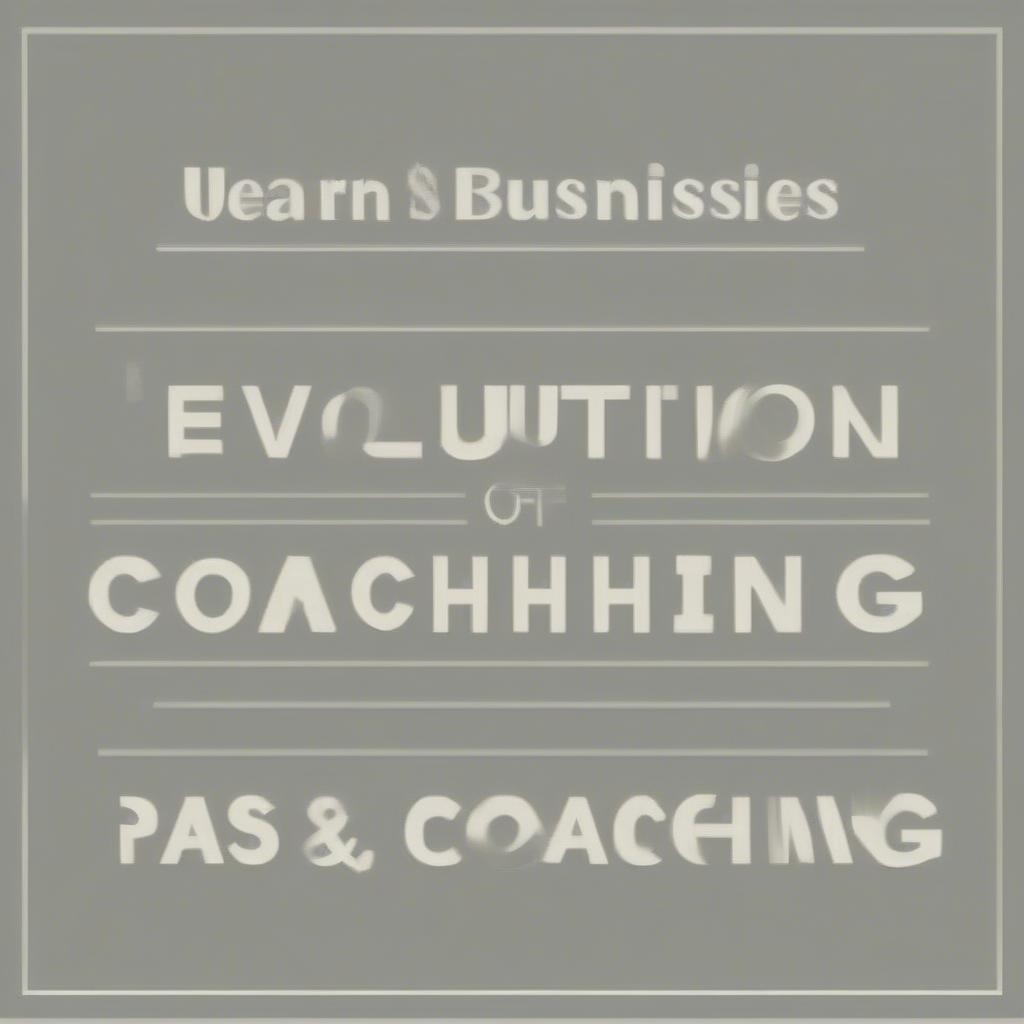
Why Listening is the Unsung Hero of Effective Coaching
Imagine a coach who talks at you, not with you. A coach who jumps in with solutions before you’ve even finished explaining the problem. Sounds frustrating, right? That’s because effective coaching isn’t about telling; it’s about understanding. And that understanding stems from one core skill: listening skills.
In the dynamic world of coaching, listening is far more than just hearing words. It’s about deciphering the unspoken, grasping the nuances, and truly connecting with your client on a human level. It’s the foundation upon which trust is built, insights are uncovered, and lasting change is fostered. Without strong listening skills, a coach is like a navigator without a map, directionless and ineffective.
The Power of Being Truly Heard
Let’s be honest, in our busy lives, how often do we truly feel heard? Not just acknowledged, but truly listened to, with genuine interest and empathy? This kind of deep listening is a gift, and it’s one of the most powerful tools a coach can possess. When a client feels genuinely heard, they feel valued, understood, and safe. This creates a fertile ground for self-discovery and growth.
Here’s why focusing on your listening skills is crucial for impactful coaching:
- Builds Trust & Rapport: When a client knows they’re being heard, they’re more likely to open up, share vulnerabilities, and fully engage in the coaching process.
- Uncovers Underlying Issues: Often, the presenting problem is just the tip of the iceberg. Deep listening helps you get to the root of the matter, uncovering hidden beliefs and patterns.
- Facilitates Self-Reflection: By actively listening and reflecting back what you hear, you encourage clients to gain new insights and perspectives on their own situations.
- Empowers Clients: Instead of providing answers, you help clients find their own solutions by truly understanding their thoughts and feelings.
- Improves Coaching Outcomes: When you truly understand your client, you can tailor your coaching approach to their specific needs, leading to more effective and lasting results.
The Many Facets of Listening Skills in Coaching
Listening isn’t just one skill; it’s a complex interplay of different abilities that all contribute to effective client communication. Let’s break down some of the key aspects:
Active Listening: Engaging With Purpose
Active listening is about being fully present and engaged with your client. It’s a conscious effort to hear not just their words, but also their emotions, body language, and underlying messages. It’s the cornerstone of effective coaching.
Here are some key elements of active listening:
- Paying Full Attention: Minimize distractions and focus solely on your client. Put away your phone, make eye contact, and demonstrate that you are fully present in the moment.
- Non-Verbal Cues: Use non-verbal cues like nodding, leaning in, and mirroring to show you are engaged and attentive.
- Summarizing and Reflecting: Periodically summarize what you’ve heard to confirm your understanding and show your client that you’re truly listening. Reflect back not just the content but also the emotions you hear, such as “It sounds like you’re feeling frustrated.”
- Asking Clarifying Questions: Don’t be afraid to ask for clarification. Questions like, “Can you tell me more about that?” or “What do you mean by…?” demonstrate interest and encourage further exploration.
- Withholding Judgment: Create a safe and non-judgmental space where your client feels comfortable sharing their thoughts and feelings without fear of criticism.
- Empathy: Try to see things from your client’s perspective. Put yourself in their shoes and understand their feelings and experiences.
Beyond Words: Decoding Nonverbal Communication
A significant portion of communication is nonverbal. Paying attention to your client’s body language, tone of voice, and facial expressions can provide invaluable insights that words alone may not reveal.
Here are some non-verbal cues to pay attention to:
- Body Language: Look for cues like crossed arms (may indicate defensiveness), fidgeting (nervousness), or slumped posture (low energy).
- Facial Expressions: Pay attention to smiles, frowns, raised eyebrows, and other facial expressions that can reveal emotions like happiness, sadness, confusion, or surprise.
- Tone of Voice: Is your client speaking calmly and confidently, or are they hesitating, stammering, or speaking in a low or high-pitched tone? These cues can reveal their emotional state.
- Silence: Sometimes the most powerful communication happens in silence. Don’t be afraid to allow for pauses in the conversation. Silence can give your client time to reflect and process their thoughts.
By combining active listening with an awareness of nonverbal cues, you can gain a much deeper understanding of your client’s inner world, leading to more impactful coaching.
The Art of Asking Powerful Questions: Leveraging Your Listening
Listening and questioning are inextricably linked in effective coaching. When you actively listen, you gather information that allows you to craft more powerful and insightful questions. These questions can help your clients explore their thoughts, challenge their assumptions, and uncover new possibilities.
Here are some tips for asking powerful questions:
- Ask Open-Ended Questions: Instead of questions that elicit a simple “yes” or “no,” ask questions that encourage your client to elaborate. For example, instead of “Are you feeling overwhelmed?”, ask “What does ‘overwhelmed’ feel like for you?”
- Ask Questions That Encourage Reflection: Questions that prompt your client to look inward can be very powerful. For example: “What would success look like for you in this situation?”, “What are your strengths that you can leverage here?”, “What would you advise someone else in your position?”
- Ask Questions That Challenge Assumptions: Don’t be afraid to gently challenge your client’s beliefs and assumptions. Questions like, “Is that always the case?” or “What evidence do you have to support that belief?” can help them broaden their perspectives.
- Ask Questions With Curiosity: Approach each question with a genuine desire to understand your client’s perspective. The intention behind your question is just as important as the question itself.
- Be Patient: Allow your client the time they need to answer. Don’t rush in with another question before they have fully expressed their thoughts.
Common Mistakes to Avoid in Coaching Listening Skills
Even experienced coaches can fall into listening traps. Here are some common mistakes to avoid:
- Interrupting: Resist the urge to interrupt your client. Allow them to fully express their thoughts without jumping in with your own ideas or solutions.
- Thinking About Your Response: While your client is speaking, try not to focus on formulating your next question or response. Focus on truly listening and being present.
- Changing the Subject: Stay focused on what your client is saying. Don’t change the topic or steer the conversation toward your own agenda.
- Providing Premature Advice: Avoid jumping in with solutions before you fully understand the issue. Your role as a coach is to guide your clients to their own answers, not to provide them for them.
- Being Distracted: Avoid distractions like checking your phone or daydreaming. Give your client your undivided attention.
- Judging: Don’t judge your client’s thoughts, feelings, or behaviors. Create a safe and non-judgmental environment.
- Assuming: Avoid making assumptions about what your client is thinking or feeling. Instead, ask clarifying questions to ensure you fully understand their perspective.
Strategies and Tools to Enhance Your Listening Skills
Improving your listening skills is a continuous process. Here are some practical strategies and tools that can help you hone your abilities:
Practicing Active Listening Techniques
- Focused Attention: Before each coaching session, take a few moments to clear your mind and focus on being present.
- Summarization Practice: At the end of each conversation, summarize what you’ve heard to check for accuracy.
- Reflection Practice: Practice reflecting back not just the content but also the emotions you perceive. For example, “It sounds like you’re feeling frustrated and a bit lost, is that right?”
- Nonverbal Awareness: Pay close attention to your client’s body language and tone of voice, and use your own non-verbal cues to show engagement.
Utilizing Powerful Questioning Frameworks
- GROW Model: Use the GROW model (Goal, Reality, Options, Will) to structure your questions and help your client explore their situation.
- The Wheel of Life: Use the Wheel of Life to get a holistic view of your client’s life and to identify areas where they want to focus their energy.
- Powerful Question Cards: Have a deck of powerful question cards handy to guide you through various situations and client challenges.
Self-Reflection and Feedback
- Journaling: Reflect on your coaching sessions and identify areas where you could have listened more effectively.
- Feedback From Clients: Ask for feedback from your clients about your listening skills. Be open to their feedback and use it to improve your approach.
- Peer Coaching: Partner with a fellow coach to practice your listening skills and provide each other with constructive feedback.
Resources for Further Learning
- Books: There are many excellent books on active listening and communication skills. Seek out books by leading experts in the field.
- Courses and Workshops: Consider taking courses or workshops specifically designed to enhance your listening skills for coaching.
- Online Resources: There are numerous articles, videos, and podcasts that can help you deepen your understanding of listening and communication.
The Impact of Strong Listening Skills on Coaching Outcomes
Ultimately, effective listening skills are not just a nice-to-have; they’re a must-have for successful coaching. When you actively listen to your clients, you create a space where they feel heard, understood, and empowered to achieve their goals.
Here are some of the benefits of focusing on developing your listening skills:
- Deeper Client Connections: You’ll build stronger relationships with your clients based on trust and understanding.
- Enhanced Client Self-Awareness: You’ll help your clients gain deeper insights into their own thoughts, feelings, and behaviors.
- Increased Client Ownership: You’ll empower your clients to take ownership of their goals and find their own solutions.
- More Effective Coaching Sessions: You’ll be able to tailor your coaching approach to your client’s specific needs, leading to more meaningful and impactful sessions.
- Measurable Results: You’ll see tangible results in your client’s progress as a direct result of your effective listening skills.
Learn Business and its Commitment to Supporting Coaches
At Learn Business, we understand the vital role that listening skills play in effective coaching. That’s why we offer a range of resources designed to help coaches enhance their skills and empower their clients. We are committed to supporting coaches by providing guidance and templates tailored to their specific needs.
How Learn Business Supports Coaches:
- Customizable Coaching Templates: We provide a library of templates to streamline your coaching process, saving you time and effort.
- Expertly Crafted Question Sets: Access to pre-designed sets of powerful questions that help you guide your clients to new insights.
- Frameworks and Models: Learn tried-and-tested coaching frameworks and models to structure your sessions effectively.
- Continuing Education Resources: Access to a wealth of articles, guides, and webinars on various aspects of coaching.
- Community Support: Connect with a community of fellow coaches to share experiences, learn best practices, and network with like-minded professionals.
- Business Development Support: Receive guidance on marketing your coaching services and growing your practice.
Our goal at Learn Business is to empower coaches with the tools and resources they need to thrive. We believe that by focusing on developing strong listening skills, coaches can create a profound positive impact on their clients and the world.
Conclusion: The Indispensable Nature of Listening Skills in Coaching
In the end, effective coaching is less about what the coach says and more about what they hear. Listening skills are the bedrock upon which successful coaching relationships are built. By actively listening, demonstrating empathy, and asking powerful questions, you can create a space where clients feel valued, understood, and empowered to achieve their full potential.
By continually refining your listening skills, you not only enhance your effectiveness as a coach, but also enrich the lives of those you serve. Embrace the power of listening and unlock the true potential of your coaching practice. Remember, becoming a truly great coach is a journey, and mastering the art of listening is a key step along the way. Embrace it, practice it, and watch your coaching flourish.



Leave a Reply